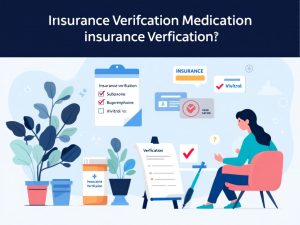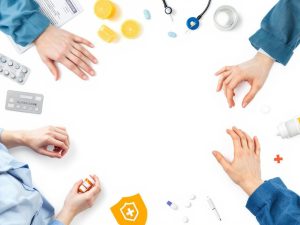Pregnancy can be one of the most transformative and meaningful stages of life, yet it can also be overwhelming if you are seeking pregnant women addiction support. Whether you have relied on substances to cope, or you feel anxious about the health of your unborn child, finding the right resources and professional guidance is critical. By recognizing your unique challenges and seeking a program tailored to the needs of pregnant women, you can lay the foundation for a healthier future for both you and your baby.
Below, you will learn about the complexities of substance misuse during pregnancy, the importance of evidence-based care, and how Epic Health Partners can offer you a supportive environment that addresses your mental, emotional, and physical well-being.
Understand pregnant women addiction support
Pregnant women typically face unusual pressures that can make addiction even more challenging to manage. Physiological changes, hormone fluctuations, and the emotional impact of expecting a child can place extra demands on your mind and body. If you are managing an existing substance use disorder or feeling urges to use during pregnancy, this period can become particularly stressful.
In 2020, the Substance Abuse and Mental Health Services Administration (SAMHSA) National Helpline received 833,598 calls, a 27 percent increase from the previous year’s 656,953 calls (SAMHSA). This surge underscores the growing need for accessible addiction assistance, including support for pregnant women. Many individuals feel immense guilt if they struggle with drug or alcohol dependence during pregnancy, and that shame often intensifies barriers to seeking care. However, caring professional support can help you move beyond these feelings, reduce risks to your unborn baby, and achieve long-term stability.
Supporting you without judgment
A nonjudgmental environment is essential when you are expecting and also battling substance use. Studies from the National Institute on Drug Abuse (NIDA) show that about 5 percent of pregnant women use one or more addictive substances, which can increase risks of stillbirth, neonatal abstinence syndrome (NAS), and other complications (NIDA). A nurturing, compassionate approach to treatment not only helps you avoid these adverse outcomes, but it also provides realistic strategies to help you cope with stressors. By seeking help early, you can minimize potential harm to yourself and your baby.
Emphasizing tailored treatment
One-size-fits-all solutions rarely address the reality of pregnancy. Tailored programs acknowledge that your journey is unique. You might struggle with multiple substances, face co-occurring mood disorders, or experience societal pressures that make it difficult to remain abstinent. With personalized care, you can benefit from comprehensive assessments, ongoing counseling, and treatment plans that evolve as your pregnancy progresses. Addressing these issues with the right team ensures you have all the support necessary for lasting recovery.
Recognize substance-specific challenges
When you are pregnant, certain substances carry their own distinct health risks for both you and your baby. Understanding how these various substances affect pregnancy makes it easier to seek the right help from qualified professionals.
Below is an overview of some commonly misused substances and their potential impact on pregnancy:
| Substance | Possible Impact on Pregnancy or Baby |
|---|---|
| Opioids | Risk of neonatal abstinence syndrome (NAS), premature labor, and potential placental issues (ACOG) |
| Alcohol | Possible fetal alcohol spectrum disorders (FASD), increased risk of stillbirth, and developmental issues |
| Tobacco | Low birth weight, placental problems, higher risk of sudden infant death syndrome (SIDS) |
| Cannabis | Potential low birth weight, possible motor development issues, especially in frequent or early-pregnancy use |
| Stimulants | Risk of preterm birth, low birth weight, and long-term cognitive and emotional developmental challenges |
| Benzodiazepines | Possible withdrawal symptoms in the newborn, respiratory difficulty, feeding problems |
Opioids
Opioid misuse during pregnancy includes heroin, fentanyl, or prescription pain medications. If you use opioids while pregnant, your baby is at risk of neonatal abstinence syndrome (NAS). This syndrome causes your newborn to experience withdrawal-like symptoms after birth, such as irritability, high-pitched crying, and difficulty sleeping. Frequent prenatal medical appointments, medication-assisted treatment, and referral to specialized services like opioid addiction treatment help you manage opioid use safely. Appropriate support can prevent further complication, ensuring both you and your baby receive the care you need.
Alcohol
Research from the National Institutes of Health (NIH) has found that alcohol use during pregnancy can cause severe complications, including fetal alcohol spectrum disorders that harm a child’s cognitive and physical development. Studies show that even moderate alcohol intake can pose hazards. For some, stress relief is the reason behind alcohol misuse, and substituting harmful behaviors with healthy coping strategies is critical for a balanced pregnancy. A program specifically designed for pregnant women can help you adopt healthier habits, identify triggers, and practice functional stress management.
Tobacco, cannabis, and other substances
Smoking cigarettes is associated with higher rates of stillbirth, preterm labor, and lower birth weights for the baby. Cannabis use, which more than doubled among pregnant women from 2010 to 2017 in the United States (NIDA), can similarly affect fetal growth. Meanwhile, stimulants like cocaine or methamphetamine can lead to complications such as premature delivery and potential developmental delays in your child. Seeking timeless interventions, such as cocaine addiction treatment, methamphetamine addiction treatment, or specialized therapy, can decrease these risks and help achieve a more stable pregnancy.
Embrace integrated care approaches
Holistic, integrated care for pregnant women battling substance use disorders blends medical support with psychological and social services. This combination reduces the likelihood of relapse and fosters a smoother path to recovery.
Medication-assisted treatment
Opioid-related disorders are one of the most concerning issues for pregnant women. When used responsibly under medical supervision, buprenorphine or methadone can reduce dependency, diminish withdrawal symptoms, and lower the risk of relapse. According to the American College of Obstetricians and Gynecologists (ACOG), medication-assisted treatment remains a cornerstone of pregnancy-related opioid use disorder (OUD) care (ACOG). If you are using opioids of any type, early integration of medication-assisted therapy can significantly improve maternal and infant outcomes.
Behavioral therapy and counseling
Pregnancy often brings unique emotional and mental health challenges, ranging from changing hormones to feelings of anxiety or isolation. Evidence-based therapies, including cbt for addiction and dbt for addiction, help you develop healthier coping mechanisms. Counseling sessions can also include your partner or loved ones, ensuring everyone receives the support necessary to foster a stable home environment for the new baby.
Addressing co-occurring disorders
Substance misuse during pregnancy often overlaps with mental health conditions such as depression or anxiety. Comorbidities like postpartum depression can intensify your vulnerability to relapse. Coordinated care that addresses both your addiction and any underlying psychiatric conditions optimizes the chance for a successful recovery journey. If you have unresolved trauma, trauma informed addiction therapy can provide insights into how past experiences drive the present-day urge to use, enabling you to strengthen your mental and emotional resilience.
Why choose Epic Health Partners for your care
At Epic Health Partners, you will discover a safe and compassionate environment built around your needs. If you or a loved one are seeking a trusted resource for outpatient behavioral health, psychiatric support, or substance-use treatment, Epic Health Partners offers the following benefits:
Tailored plans for pregnant clients
Our programs are grounded in evidence-based approaches while also acknowledging the complexities of pregnancy. We use a comprehensive intake process that explores your history, current health, and personal preferences, ensuring an individualized plan that aligns with your goals.Comprehensive wraparound services
You might need additional care beyond standard addiction treatment. We can connect you to supportive services such as sud case management, mental health evaluations, and postpartum follow-up. By covering every angle of your well-being, we empower you to stay focused on long-term health.Multidisciplinary team of professionals
Our dedicated professionals include mental health clinicians, addiction specialists, doctors, and nurses. This multidisciplinary approach guarantees that your physical, mental, and emotional health is addressed simultaneously. For instance, if you need postpartum assistance, we offer postpartum addiction support, ensuring you remain supported well after childbirth.Flexible outpatient structure
Whether your schedule is demanding because of work, family obligations, or prenatal appointments, we are committed to offering flexible options. Programs like telehealth addiction counseling and virtual therapy addiction let you receive care remotely, giving you the freedom to attend sessions from home. By removing hurdles such as transportation or childcare challenges, we help you maintain consistent engagement.Commitment to insurance acceptance
Financial concerns should not discourage you from seeking help. We are an insurance accepted outpatient care provider, and we collaborate with insurers to keep your treatment accessible and affordable. If you rely on Medicaid, our staff can guide you through the process as a medicaid mental health provider, ensuring you get the support you need without overwhelming out-of-pocket costs.Holistic healing methods
The recovery process extends beyond stopping substance use. Combining specialized therapies—such as mindfulness therapy addiction, nutrition counseling, or stress reduction techniques—helps you manage the emotional strain that follows you through pregnancy and beyond. These holistic strategies improve your overall sense of well-being and make your new journey into motherhood less stressful.
Seek holistic resources for your journey
Holistic resources bridge gaps in your recovery journey and empower you to look beyond simple abstinence, integrating healthier strategies into your daily schedule. These resources may include:
Nutrition support
Proper nutrition is essential for healthy prenatal development. Programs offering nutrition support addiction can guide you in making beneficial food choices to enrich both your own health and that of your baby. Balanced meals can ease some of the fatigue that often accompanies pregnancy, while also fortifying you against certain complications.Peer and group support
Group sessions, such as group therapy addiction, bring you together with others who face similar challenges. This collective approach offers a sense of camaraderie—knowing you are not alone in your concerns and experiences. By enrolling in these sessions, you can expand your support network, gain insight from peers, and promote mutual accountability.Family-centered care
Welcoming new life can be both joyful and stressful for the entire family. By working with partners, siblings, or close relatives, you can develop a more stable living environment. Services like family therapy addiction encourage loved ones to communicate effectively, reduce conflicts, and learn how best to offer ongoing support during pregnancy and postpartum recovery.Continued postpartum care
Following the birth of your child, other demands will vie for your attention. Yet, this time can remain vulnerable for relapse if you lack ongoing assistance. A specialized program offering extended postpartum follow-up and postpartum addiction support makes sure you receive a steady flow of care. Whether it is refining your coping strategies or adjusting medication dosages, ongoing vigilance helps you transition into motherhood with greater confidence.
Frequently asked questions
What substances pose the greatest risk during pregnancy?
Each substance may cause specific complications, but opioids, alcohol, and tobacco have been extensively studied and shown to lead to issues such as premature labor, stillbirth, or low birth weight. Alcohol can cause fetal alcohol spectrum disorders, while opioid misuse can lead to neonatal abstinence syndrome. Tobacco and other substances such as cannabis or stimulants also increase the likelihood of health complications for both you and your baby.How do I choose the right treatment program if I’m pregnant?
Look for a program that offers you a tailored approach. From your first assessment, the treatment team should consider your physical health, mental state, and substance use history. Ask about credentialed staff, medication-assisted options, and postpartum follow-up. Programs like those at Epic Health Partners include clinical intake assessment and a thorough review of your needs, ensuring personalized care.Will using medication-assisted treatment harm my baby?
Medication-assisted treatment for opioid use disorder, including methadone or buprenorphine, is recognized by ACOG as a best practice. While your baby may still experience neonatal abstinence syndrome (NAS), it is generally less severe compared to withdrawing from street opioids. Through proper monitoring and adjustments, your medical team will seek to optimize your safety and your baby’s comfort. If you have specific concerns, speak with your obstetrician or addiction specialist to understand the potential benefits and risks in your unique case.Is it safe to continue therapy or counseling after I give birth?
Yes. Postpartum can bring new emotional challenges, including exhaustion and potential postpartum mood disorders. Consistent therapy, group support sessions, and follow-up appointments will give you the chance to discuss changes in your mental health, parenting concerns, or ongoing triggers. Programs offering non punitive outpatient care encourage you to remain active in treatment without stigma or blame.How can Epic Health Partners support my transition into motherhood?
Epic Health Partners offers integrated outpatient services that continue into the postpartum period. We tailor care plans to your evolving needs, whether it is ongoing counseling, medication adjustments, or specialized postpartum sessions to help prevent relapse. By focusing on your physical, mental, and emotional wellness, our team ensures you have the ongoing support required to thrive in your new role as a parent.
Conclusion
Overcoming substance use during pregnancy might feel overwhelming, but help is available. By acknowledging your unique challenges in this exceptional phase, you can open yourself to therapies and support networks that build resilience and promote a healthier life for you and your child. Whether you struggle with opioids, alcohol, cannabis, or any other substance, connecting with a professional team is a crucial step toward transforming uncertainty and fear into hope and healing.
Epic Health Partners stands ready to offer a supportive environment and comprehensive care to you as an expectant parent. Through integrated treatments, compassionate counseling, and evidence-based practices, we help you navigate obstacles from prenatal stages to postpartum. You deserve the support necessary for lasting recovery, and your baby deserves the strongest start possible. Seek out professional assistance today, explore the appropriate addiction services that fit your journey, and look forward to a future centered on renewed health and emotional well-being.







